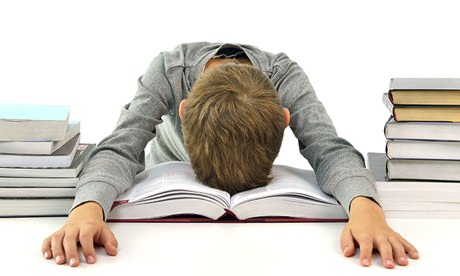The Impact of Early School Start Times on Adolescents
Posted by Admin

Snooze or lose; later school start times may be more beneficial for adolescents, recent recommendations suggest.
With recent research demonstrating how the biological changes implicated in puberty cause a shift in the adolescent circadian rhythm, it is not surprising that the average North American adolescent is chronically sleep-deprived and pathologically sleepy.
While “going to bed earlier” seems a reasonable solution to chronic adolescent sleep deprivation, from a biological standpoint the pubescent brain ultimately makes it difficult to fall asleep at an earlier bedtime. During puberty, the brain secretes less melatonin which results in a shift in circadian rhythm, causing adolescents to start getting tired later at night and delaying bedtime by as much as two hours.Although the Canadian Paediatric Society recommends that teenagers get between 9-10 hours of sleep each night, because the average teenager has difficulty falling asleep until at least 11pm and must wake early, only about 13% of high school students get this recommended amount of sleep.
These biological factors in conjunction with lifestyle, social, and academic stresses (studying late at night on electronic devices, extracurricular activities, part-time jobs, etc.) make falling asleep early in order to wake early extremely difficult for the average teenager. With the majority of adolescents being chronically sleep deprived, it is important to recognize the physical and mental health problems that can result from not getting enough sleep.
 (“The Teen Sleep Crunch, from “Snooze or Lose”, by Dr. Helene Emssellem”)
(“The Teen Sleep Crunch, from “Snooze or Lose”, by Dr. Helene Emssellem”)
Sleep deprivation and pathological sleepiness can have negative consequences on physical and mental health, school performance, and safety. Sleep plays a critical role in the development of the adolescent brain and body and its importance cannot be minimalized. Sleep deprivation can negatively affect mood regulation, attention, and memory which can negatively affect academic performance and self-confidence. With adolescents being the most likely to experience mental illness or substance-related disorders, it is critical to ensure adequate amounts of sleep in order to maintain mental and physical health and well-being.
With about 40% of North American high schools starting before 8:00am, it seems somewhat impossible that the average teenager receives recommended amounts of rest before the school day. Too-early school start times are a key factor in the sleep deprivation of adolescents as it directly requires them to be present before the brains is out of “sleep-mode”. Research suggests that starting school later results in improved mental and physical health and wellbeing. While school attendance and overall academic performance improved, absenteeism, substance-related disorders, and symptoms of anxiety & depression decreased. Further, one study found a 70% drop in teenage car accidents with a later start time.
Delaying the start time of class by even as little as a half-hour can have tremendous benefits on the physical and mental health of adolescents, and the first step is recognizing adolescent sleep cycles and sleep deprivation as a critically important public health measure for our youth.
Contact us to discover how we can help treat you or your teens sleep disturbances!
